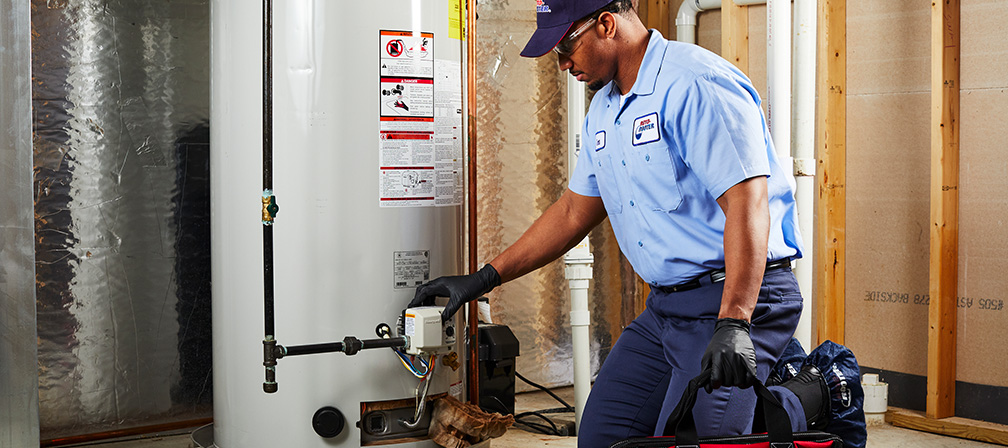 Nothing throws a wrench in a good day like stepping into what you expect to be a steamy shower only to be greeted by an icy blast of cold water. More often than not, the culprit behind these rude awakenings is a faulty water heater. But fear not! This guide is your first step towards never facing such a chilly surprise again. We’re diving deep into the world of water heater repairs, equipping you with everything you need to know to identify, tackle, and prevent common water heater woes. Say goodbye to cold showers with our water heater repairs. Surfside Services isn’t just about fixes; it’s about providing a wave of excellence. Click for warm solutions and warmer customer care.
Nothing throws a wrench in a good day like stepping into what you expect to be a steamy shower only to be greeted by an icy blast of cold water. More often than not, the culprit behind these rude awakenings is a faulty water heater. But fear not! This guide is your first step towards never facing such a chilly surprise again. We’re diving deep into the world of water heater repairs, equipping you with everything you need to know to identify, tackle, and prevent common water heater woes. Say goodbye to cold showers with our water heater repairs. Surfside Services isn’t just about fixes; it’s about providing a wave of excellence. Click for warm solutions and warmer customer care.
What You’ll Learn:
- The tell-tale signs your water heater is crying for help
- DIY fixes for the brave at heart
- When to call in the cavalry (aka professional help)
- Preventative maintenance to keep your water heater in fighting form
Recognizing the Signs: Is Your Water Heater on the Fritz?
Before you can fix a problem, you’ve got to know you have one, right? Keep your senses peeled for these warning signals:
- Unexpected Cold Showers: The most obvious sign that something’s amiss.
- Strange Noises: Popping, rumbling, or banging sounds can indicate sediment buildup.
- Leaks: Water around your heater is a red flag.
- Murky or Rust-Colored Water: Indicates corrosion inside the tank.
- Inconsistent Temperature: If the water’s too hot one minute and too cold the next, your heater’s thermostat might be on the blink.
DIY Fixes: When to Roll Up Your Sleeves
There’s something satisfying about fixing stuff around the house, isn’t there? Here are a few problems you might be able to tackle yourself:
- Resetting the Thermostat: Sometimes, all your water heater needs is a little reboot.
- Flushing the Tank: This can get rid of sediment buildup affecting performance.
- Replacing the Heating Element: Handy with tools? This might be a project you can handle.
Calling the Pros: Know When You’re Outmatched
Sometimes, the best DIY move is picking up the phone. Here are situations where you should definitely seek professional help:
- Gas Leaks: Smell gas? Don’t mess around. Get out and call a pro.
- Major Leaks: If it’s more than just a drip, you’ll want someone with experience.
- Electrical Issues: Because mixing electricity and water is a terrible idea.
Preventative Maintenance: An Ounce of Prevention
They say prevention is the best medicine, and that’s certainly true for water heaters. Regular maintenance can save you a ton of hassle:
- Annual Inspections: Have a pro give your heater a once-over every year.
- Regular Flushing: Doing this yearly can prevent sediment from causing trouble.
- Temperature Checks: Keeping it set to the recommended temperature prolongs its life.
FAQs: Your Burning Questions Answered
Q: How long does a water heater usually last? A: The lifespan of a water heater can vary depending on its type, maintenance, and water quality. On average, traditional tank water heaters last between 8 to 12 years, while tankless water heaters can last up to 20 years or more with proper care.
Q: Can I install a water heater myself? A: While it’s possible for a DIY-savvy individual to install a water heater, it’s not recommended unless you have specific knowledge of plumbing and electrical/gas systems (depending on your heater type). Incorrect installation can lead to performance issues, increased energy costs, or even dangerous situations like gas leaks or water damage. For most people, it’s safer and more efficient to hire a professional.
Q: What’s the deal with tankless water heaters? Are they better? A: Tankless water heaters, also known as on-demand water heaters, heat water directly without the use of a storage tank. They are more energy-efficient than traditional tank water heaters because they only heat water as it’s needed, reducing energy losses associated with keeping a tank of water hot 24/7. However, they have a higher upfront cost. Whether they’re “better” depends on your household’s water usage, budget, and energy efficiency priorities.
Wrapping It Up: Keeping the Heat On
There you have it—a comprehensive guide to navigating the waters of water heater repairs. Remember, while some fixes are perfect for the home repair enthusiast, there are times when calling in a professional is not just the best choice, but the safest one. By staying vigilant for signs of trouble, performing regular maintenance, and knowing when to call in the experts, you can ensure that your water heater remains a reliable source of comfort in your home.




